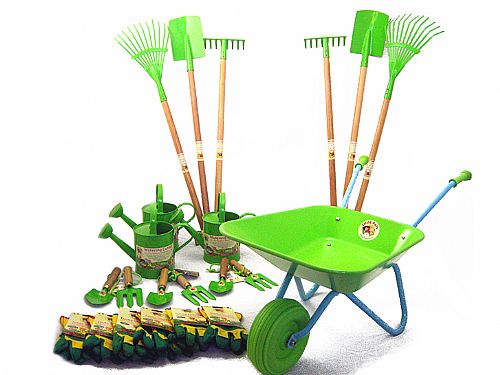How to Set up a Children's Gardening Club
Follow these 10 steps to begin growing your own fruit and veg. Start a children’s gardening club that’s fun and educational for children all ages.
Start a flourishing club by following these 10 simple steps.
1. Grab some green space, if you are limited on the amount of green space you have then use some alternative pots and beds.
2. Tools are excellent to aid those little green fingers and there are many varieties available that have been specially designed for small hands like the Little Pals Tools Pouch Kit.
3. Tracking the seasons and the right time for activities is not only good for you as the club leader but also for the children. They can then understand how different plants grown at different times of the year. Websites such as the BBC or the RHS have excellent gardening calendars.
4. Seeds are an excellent start to a club, get parents to bring some in or simply go and buy a selection from your local gardening centre. But, remember to check your calendar!
5. Whilst gardening is an exciting and messy job, rainy days often leave children is more of a mess than is required. Why not use this time to take them inside and learn about the different aspects to gardening such as the wildlife that gardening attracts. Butterfly gardens are an excellent way to learn about lifecycles.
6. Rainy days make watering the garden a doddle! But on those hot summer days, there just is not enough water to go round. Make sure you have some water access for your club as it is also crucial to potting new plants.
7. A cookery club can help with the use of the produce and also add another educational aspect to the children’s day. Alternatively produce can be sold in aid of the gardening club to buy seeds and tools for the next year, gardening tool sets for schools are ideal packs that contain all the tools you need to begin.

8. Gardening clubs can be expensive to run, so use what you have! Compost garden and food waste, use old pots such as yogurt pots to plant seeds. Even better introduce a wormery to the garden club, that way you will introduce not only compost but a great educational lesson for the children!
9. Get your club known, advertise to parents and get them involved in the process too! The more support the better the garden and the experience for the children.
10. Finally be enthusiastic and help educate children about the beautiful and creative world we live in.